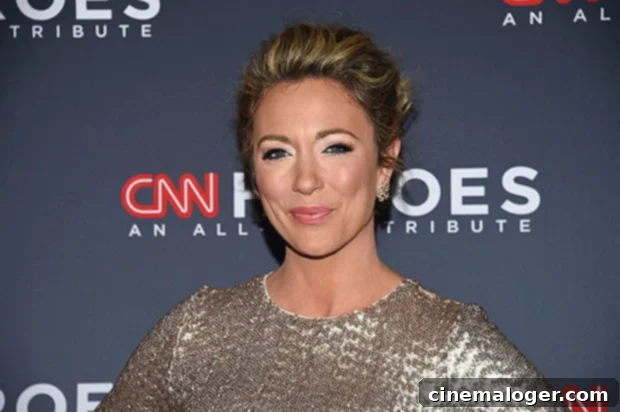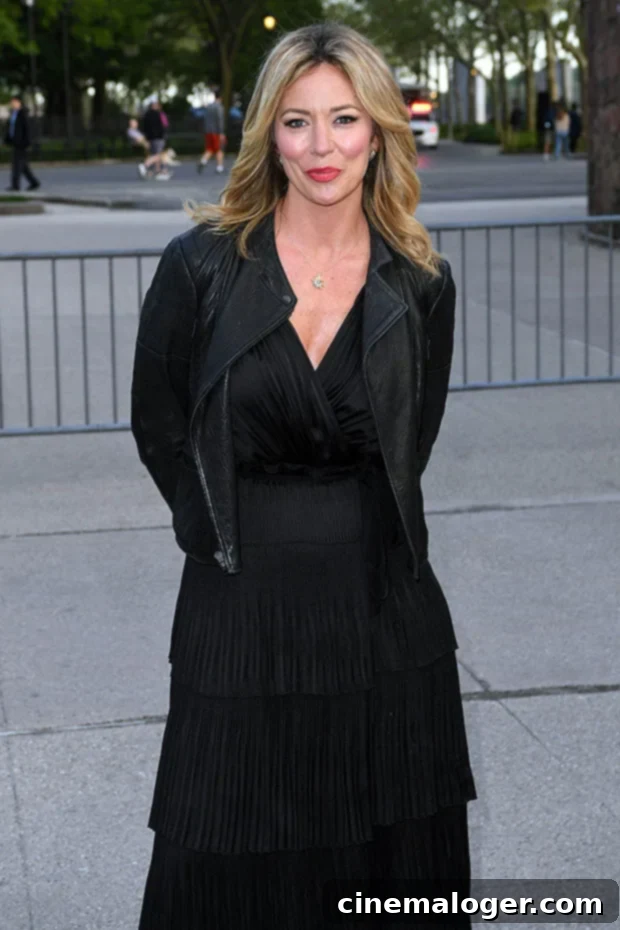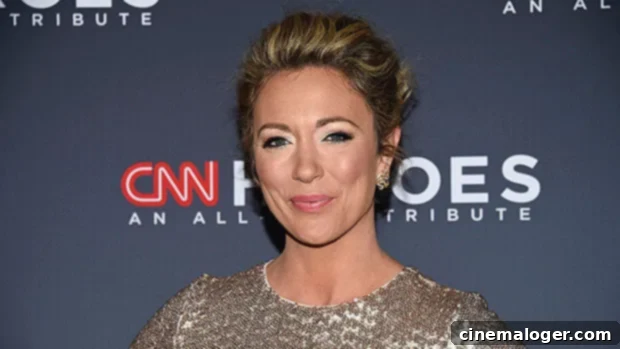Brooke Baldwin Departs CNN, Calls Out Gender Disparity, and Champions Women’s Empowerment with ‘Huddle’
If you purchase an independently reviewed product or service through a link on our website, we may receive an affiliate commission.
After a distinguished 13-year tenure at CNN, veteran anchor Brooke Baldwin announced her departure from the prominent news network, signaling a significant shift in her career trajectory. As she prepared to step away, Baldwin openly discussed the pervasive gender disparities she observed during her time at CNN, particularly highlighting the overwhelming presence of men in the network’s most influential and highly compensated roles. Her candid remarks, made during an appearance on Ms. Magazine’s podcast “On The Issues With Michele Goodwin,” shed light on the challenges women face in ascending to top-tier positions within major media organizations and underscore her commitment to advocating for greater equity.
Brooke Baldwin’s Enduring Legacy at CNN
Brooke Baldwin’s journey with CNN began in 2008 as a freelancer, a role that quickly evolved into a permanent anchoring position where she became a familiar and trusted face for millions of viewers. For over a decade, Baldwin helmed the CNN Newsroom, often for two hours each afternoon, covering a multitude of breaking stories and conducting countless interviews with leading figures from politics, entertainment, and current events. Her broadcast career was marked by numerous headline-making moments, where she demonstrated a unique ability to connect with audiences while navigating complex news cycles. Her dedication to journalism and her steadfast presence on air cemented her reputation as a formidable and respected voice in cable news. Her decision to leave CNN, finalized this month, not only marks the end of an era for her but also prompts a broader conversation about the environment within the network she served so loyally.
Calling Out Gender Disparity and Male Dominance at the Network
In her revealing podcast interview, Brooke Baldwin articulated her frustrations with the gender imbalance she witnessed firsthand at CNN. She pointedly noted, “I’ve been anchoring for 10-plus years, the majority of that time two hours in the afternoon. And in that time, you know, the most influential anchors on our network [and] the highest-paid, are men.” Baldwin’s observations extended beyond on-air talent, encompassing the executive leadership as well. She elaborated, “My bosses, my executives are men. The person who oversees CNN Dayside is a man, and my executive producer for 10 years is a man. So, I have been surrounded by a lot of men.” This detailed account paints a clear picture of a hierarchy predominantly staffed by men, raising questions about diversity in decision-making and content shaping at a major news outlet. Her comments resonate with ongoing industry-wide discussions about the glass ceiling and the persistent struggle for women to achieve parity in leadership and compensation.

Despite these observations, Baldwin expressed a sense of optimism regarding future prospects for women in media. “I do think it is changing, I know it is changing just by looking at some of the faces that are popping up more and more on our channel,” she hopefully added. This nuanced perspective acknowledges the historical challenges while also recognizing incremental progress, suggesting that while the path to true equality is long, visible shifts are beginning to occur.
Advocating for Women’s Stories and the Impact of ‘Huddle’
A significant aspect of Brooke Baldwin’s career, and a passion she continues to champion, is the telling of women’s stories. During her time at CNN, she frequently found herself advocating for these narratives, often facing resistance. She revealed that she “got told no a lot” when proposing stories focused on women’s experiences and perspectives. However, Baldwin persisted, pushing through denials to bring important stories to air. She firmly believes that meaningful change in media content requires more than just visible female anchors; it demands women in positions of power behind the scenes. “Little by little, by having women in places of power — and I would argue behind-the-scenes, not just in front, but behind-the-scenes — that is how you then have stories that reflect who they are,” she asserted. While acknowledging improvements, she concluded that “it’s getting better but we still have a bit of a ways to go,” highlighting the ongoing need for sustained effort in diversifying media narratives. This advocacy is further amplified in her recently released book, Huddle: How Women Unlock Their Collective Power, where she delves into the power of female solidarity.

Her book, Huddle: How Women Unlock Their Collective Power, is a profound exploration of what Baldwin terms “huddling.” This concept describes instances “when women lean on one another—in politics, Hollywood, activism, the arts, sports, and everyday friendships—to provide each other support, empowerment, inspiration, and the strength to solve problems or enact meaningful change.” The book serves as a powerful testament to the collective strength of women, showcasing how mutual reliance and support can be instrumental in achieving personal and societal success. It’s a call to action for women to connect, collaborate, and uplift one another, fostering an environment where shared experiences lead to greater influence and transformative change.
A New Chapter: Beyond CNN and Personal Reflections
Brooke Baldwin’s frank discussions about gender inequality at CNN coincide with her widely reported decision to leave the network in February. Her departure, set for the end of this month, marks a pivotal moment in her career, allowing her to pursue new avenues and amplify her advocacy for women. Beyond her professional achievements and the impactful themes of her book, Baldwin has also shared deeply personal experiences with the public. Earlier this month, she garnered significant attention when she published an essay detailing her arduous battle with COVID-19. Her candid account highlighted the severe physical toll of the illness, including “agonizing body aches,” offering a raw and honest glimpse into her personal resilience during a global health crisis. This willingness to share both professional challenges and personal vulnerabilities has endeared her to many, solidifying her image as an authentic and relatable public figure.
Intriguingly, Baldwin revealed that the very process of writing Huddle played a significant role in her decision to leave CNN. The immersive experience of interviewing inspiring women and delving into the dynamics of collective female power provided her with a new perspective that diverged from the demands of her daily news anchoring role. She explained to PEOPLE, “I don’t know if it was a combination of turning 40 or having done this job for a decade or it was being in the deep end with these women, interviewing them — it was different from my day job.” She further elaborated on the contrast, noting that while many guests appeared on her show, those interviews were often constrained to mere minutes before moving on to the next segment. The profound engagement required for her book project fostered a sense of purpose and direction that ultimately led her to seek new professional challenges beyond the confines of traditional broadcast news.
The Broader Conversation: Gender Equality in Media
Brooke Baldwin’s public statements about gender inequality at CNN contribute to a much larger, ongoing conversation about representation and power dynamics within the media industry. Her departure and subsequent candid reflections serve as a poignant reminder that even in an era where diversity is increasingly prioritized, significant hurdles remain for women, particularly those aspiring to the highest echelons of influence and leadership. Her observations highlight systemic issues that extend beyond a single network, echoing concerns raised by women across various sectors of media, from journalism to entertainment. The call for more women in “behind-the-scenes” power positions is critical, as these roles directly influence editorial decisions, resource allocation, and ultimately, the narratives that shape public discourse. Baldwin’s advocacy, both through her words and her book, reinforces the idea that true progress demands not just visibility but also equitable access to decision-making authority.
As Brooke Baldwin embarks on this new chapter, her legacy will undoubtedly include her incisive journalism and her powerful advocacy for gender equality. Her courageous decision to speak out about the disparities she encountered, coupled with her dedication to empowering women through her work, positions her as a significant voice in the ongoing movement for a more equitable and representative media landscape. Her book, Huddle, provides a roadmap for collective action, while her personal journey underscores the importance of individual agency in challenging established norms. Her future endeavors are poised to continue inspiring women to lean on one another, harness their collective power, and effect meaningful change in their respective fields and in the world at large.
